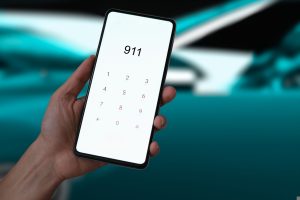If you’re involved in a domestic dispute in Southeast Florida, you’ll need to understand that a number of the questions police ask at the scene are part of a risk assessment that is mandated by law. The answers could determine whether you spend the night in jail, are granted bond, and how aggressively prosecutors pursue your case. Florida Senate Bill 1224, known as the Gabby Petito Act, went into effect last year. It requires law enforcement officers conduct a standardized lethality assessments at every domestic violence scene. While these protocols are designed with victim safety in mind, they create a minefield for anyone accused of domestic violence, and most people don’t realize their answers are being scored until it’s too late. 
Fort Lauderdale criminal defense lawyers serving Broward County and surrounding areas have seen firsthand how these assessments to build stronger prosecution cases and justify harsher bond conditions. Understanding what’s at stake and when to exercise your constitutional right to remain silent could be the difference between walking away from charges and facing years of legal consequences.
What Is the Lethality Assessment Program?
The Lethality Assessment Program (LAP) is a standardized screening tool that law enforcement officers use to evaluate the risk of future violence or homicide in domestic violence situations. Originally developed by the Maryland Network Against Domestic Violence, LAP has been adopted by 33 states, including Florida, where it became mandatory statewide following its passage in 2024.
Named after Gabby Petito, the 22-year-old woman whose 2021 death brought national attention to domestic violence warning signs, the Gabby Petito Act requires all Florida law enforcement agencies to implement LAP or a similar evidence-based lethality assessment tool. The law changed how domestic violence calls are handled across the state.
The assessment consists of about a dozen standardized questions that officers ask the alleged victim at the scene. These questions are designed to identify risk factors associated with domestic violence homicide, including strangulation, threats with weapons, escalating violence, stalking behavior, and access to firearms. Based on the alleged victim’s responses, officers assign a risk score that categorizes the situation as high danger or lower risk.
While the stated purpose is victim protection, connecting high-risk victims with domestic violence advocates and resources. However, the practical effect extends far beyond support services. These assessments are documented in police reports, shared with prosecutors, and frequently referenced at bond hearings and pretrial proceedings.
Florida Lethality Assessment Questions
Understanding what police are actually assessing during these encounters is crucial. While the exact wording may vary slightly between jurisdictions, the Maryland LAP, which serves as the model for Florida’s implementation, includes questions such as:
- Has the violence increased in severity or frequency over the past year?
- Has the alleged abuser ever used a weapon against you or threatened you with a weapon?
- Do you believe the alleged abuser is capable of killing you?
- Has the alleged abuser ever tried to choke or strangle you?
- Is the alleged abuser violently or constantly jealous, or does he/she control most of your daily activities?
- Have you left or separated from the alleged abuser after living together?
- Is the alleged abuser unemployed?
- Has the alleged abuser ever tried to kill himself/herself?
- Does the abuser have a gun or can he/she get one easily?
- Has the abuser ever threatened or tried to kill your children?
- Do you have a child with someone other than the alleged abuser?
These aren’t casual questions. Each one corresponds to validated risk factors for intimate partner homicide identified through extensive research. A yes answer to even a few of these questions can elevate the case to “high danger,” triggering immediate intervention, mandatory advocacy referrals, and, critically, documentation that will follow the accused throughout the criminal justice process.
 Fort Lauderdale Criminal Attorney Blog
Fort Lauderdale Criminal Attorney Blog
















